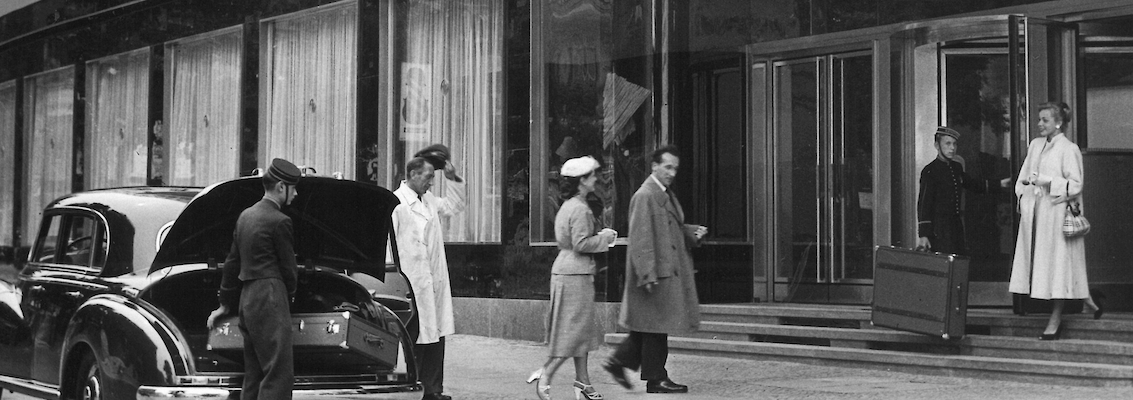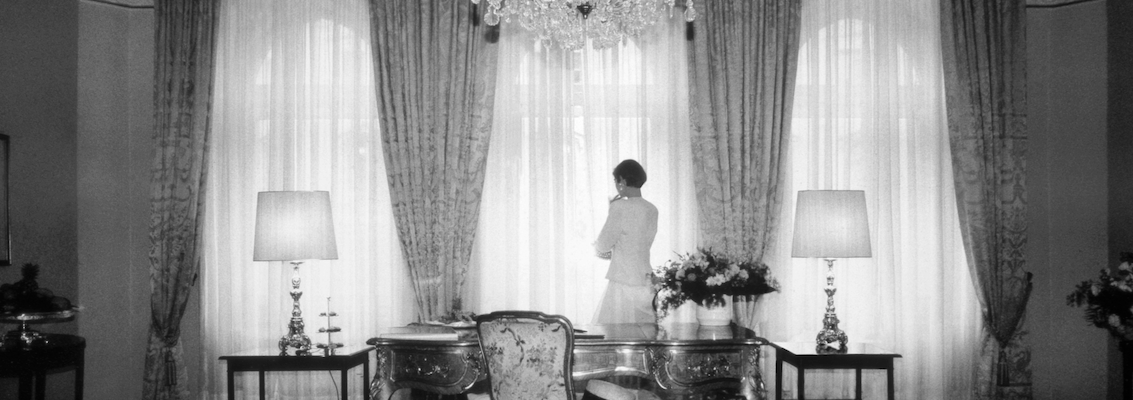Successful in business as a wine merchant and restaurateur, Berthold Kempinski was also a consummate host, with a true passion for people and hospitality. In 1897 Berlin, he set an enduring benchmark for exceptional service and luxury with the first hotel to bear his name.
As Kempinski Hotels celebrates its 125th anniversary, Chief Commercial Officer Amanda Elder, who oversees global commercial strategy for the company, discusses how founding values balanced with vision and innovation have kept Europe’s oldest independent luxury hotel group fit and flexible for the long run.

ALHI: 125 years is impressive for any business in any industry. How has Kempinski Hotels maintained its allure?
Elder: Essential elements include our authenticity and the spirit of Berthold Kempinski, who embraced bringing people together and bettering their lives through hospitality and entertainment. From serving smaller food portions so that his guests could sample a range of tastes to serving glasses of wine instead of whole bottles, his pioneering ideas grew in significance at his flagship property in Berlin. Retaining his passion for hosting, from which the brand arose, is central to our success.
ALHI: How do you uphold those founding principles, and how has the brand most evolved?
Elder: Judging ourselves on what we call “beautiful performance,” we intrinsically hire our talent based on their desire to host our guests. We want them to enjoy their experience and get the best from their time with us. Our general managers, for example, must be versed in wine and cigars and other fine things, as well as the local community and culture. The stage belongs to the guest and our staff is there to serve.
Most evolved is how we answer the question of “what does luxury mean” to our guests. We also ask ourselves how our unique brand of European luxury translates around the world. Historically, luxury was about greeting arrivals at the door and recognizing them by name and fawning over them. Not everybody wants that today though. Intentionally seeking retreat and privacy, some guests want the service without the fuss. Knowing the difference is key.
ALHI: How much do you learn about a guest before they walk through the door, and how much is reading body language and other cues?
Elder: It’s a mix of both. Technology helps us understand specific guest tastes and preferences, such as privacy. We also recognize that guests can be in different modes from stay to stay. A business traveler accompanied by their spouse may want more of that personal touch service, while not wanting to be engaged if alone on business. Tech alone can solve for so much before becoming cookie-cutter. For our tailor-made guest experiences, you need the human element too.

ALHI: Does that include attuning the guest experience for different regional and global markets?
Elder: Absolutely. We diligently educate ourselves and train for local culture, including special holidays, language requirements and customs when entering new markets. Our hotels and people reflect the personality of the destination. When creating our signature “bubbly moments” for guests in France, it’s champagne, while in the Middle East, it’s infused mineral water. At the same time, we weave that Kempinski brand DNA and feeling of European luxury throughout our global portfolio. At our new Sindhorn Kempinski Hotel Bangkok, for example, we serve the Berliner, our jam donut from the Adlon Kempinski Berlin. It’s our subtle way of bringing in that taste of Europe.
ALHI: Speaking of the Adlon, the Rolling Stones based there for their European tour finale this summer. What makes Kempinski the hotel of choice for rock stars, heads of state, royalty, captains of industry and other discerning guests?
Elder: They trust that we will deliver what we promise and recognize that we truly know and appreciate them. At all 80 Kempinski hotels worldwide, we know who supports us, which creates that bond of trust. Our entrepreneurial general managers are also free to create the right experience for VIPs within the framework of our DNA, humility and discretion included of course. Few know all the celebrities who stay at our Munich property, for instance, which is what the rich and famous want and why they come.
ALHI: How does that ethos extend to meetings, incentives and events?
Elder: By similarly delivering what we promise, expressing the individuality and personality of the given property, and not trying to be all things to all people. We think of ourselves as the silent partner that understands the customer’s business objectives and ensures that they are met, with dedicated concierge service from start to finish. Meetings are about bringing people together for networking and connections and inspiring or driving business. Our job is to create the environment for success without encroaching on the privacy or the expectation of the event.
ALHI: How has the pandemic altered the meetings landscape and how is Kempinski adjusting?
Elder: Here again, it’s about understanding changing customer needs. Some prefer to continue with sanitizers, masks, health guidance and other COVID-era measures. Others run their programs like it’s 2019. We meet their needs without being prescriptive or directive either way. Regarding hybrid meetings, we dabbled in that space but now see it going away. In Europe especially, people absolutely want to meet in-person again.

ALHI: What current trends are you seeing in hospitality and meetings?
Elder: People genuinely want wellness solutions. While we don’t believe in hybrid meetings, we do believe in hybrid travel—business with added leisure time. Recognizing that business is about output and achievement, we are re-examining hotel room and functionality design and what functionality they offer, while enhancing the lobby as the “living room” of the hotel.
ALHI: From being the first hotelier in uncharted markets to innovating on services and products, how does Kempinski think about risk?
Elder: I’d say we inherently manage risk through the structure of our loyalty program, Global Hotel Alliance, of which we are a founding major shareholder. Counting 21 million members, the Alliance is a formed by renowned independent hotel brands that are all well-established are in their respective parts of the world. Plus, we have Oracle as our technology partner. This framework means that we are not making decisions alone. Instead, we share knowledge and learn from each other, which affords us the opportunity to collaboratively discuss and consider different viewpoints before making an informed strategic decision. This can alleviate much of the tension of the process.
ALHI: For year 126 and beyond, what are you looking at in terms of maintaining your long-term growth and profitability, competitive standing and brand appeal?
Elder: Our continued opportunity is to differentiate ourselves through our quality. From our sales and marketing people to our general managers and chief compliance officers, we are all aware of how we index on quality. It’s not about selling one more room night or signing one more hotel. Rather, we focus on understanding and driving the qualities that set us apart. Do that and the customers and deals will follow. That is how we view the future.
Development is also key. We have a solid pipeline of 20 hotels coming up in the next two years, include five projects in both Saudi Arabia and Asia and three in Europe. We carefully control our growth, taking a measured strategic approach based on where we want to be, and who we want to partner with. At the same time, we want to retain our pioneering spirit and continue to expand to different markets.
These include North America, starting with our takeover of the former Ritz-Carlton in Cancun, Mexico. Unfolding as we speak, it’s all very exciting. While we have a U.S. following because they have traveled to Europe, many Americans do not understand the brand. Cancun offers a ready starting point.